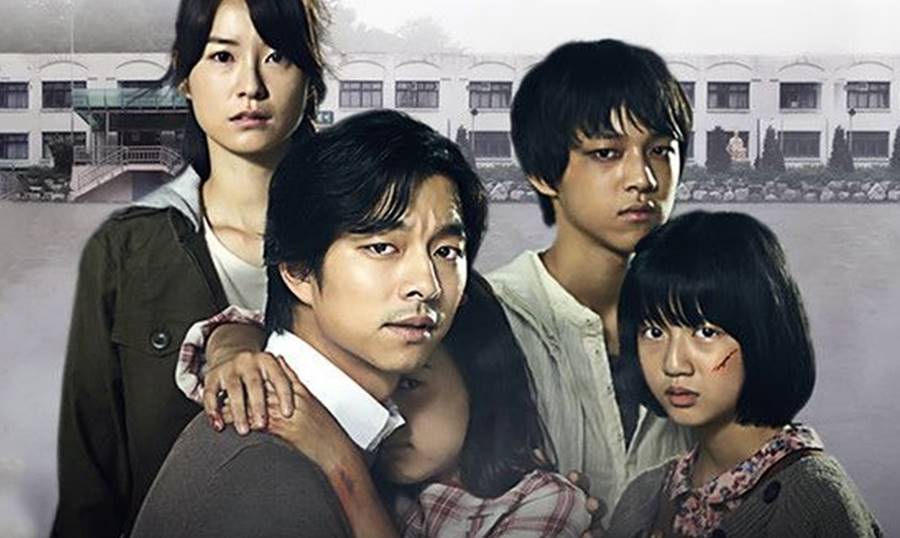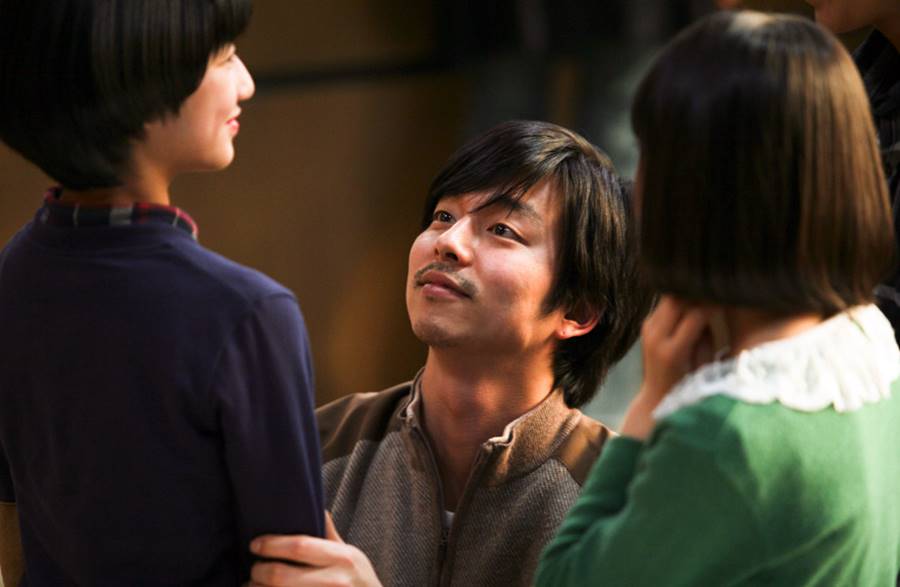-

Jung Yu-mi, Gong Yoo, Jung In-seo, Baek Seung-hwan, Kim Hyun-soo
By Jae-Ha Kim
Substack
January 11, 2022
☆☆☆☆
Kang In-ho (played by Gong Yoo)
Seo Yoo-jin (played by Jung Yu-mi)
↑Note: Korean names denote the surname followed by the given name.
Based on Gong Ji-young’s 2009 novel, “도가니” (“The Crucible”), “Silenced” is a brutal look at the systematic torture of children at a facility for the hearing impaired. Though Gong’s book is fictional, the stories she tells are based on the decades of real-life abuse that handicapped students endured at the Gwangju Inhwa School for the Deaf.
In this film adaptation, the widowed In-ho leaves Seoul for a job teaching art to deaf students in Mujin. A failed artist whose family suffered due to his inability to financially provide for them, In-ho optimistically views his new job as an opportunity to finally earn enough money to properly raise his asthmatic daughter and repay his elderly mother (who is caring for the child while he works). The only way he even got this position was because his former college professor recommended him.
But on his first day of school, he senses that things aren’t normal. He tries to overlook the fact that children are reticent to meet his eyes. When he sees a teacher brutally beating a boy, he doesn’t interfere when his new colleague laughs off the corporal punishment as justified. And later, when a school administrator tells him he must donate ₩50,000,000 — about $45,000 USD [at the time “Silenced” was released] — to the school’s foundation if he wants to work there, he is so desperate for the job that he convinces himself that this abnormal request is acceptable. His mother ends up selling her house to pay this bribe.
What?! That donation request should’ve been In-ho’s first clue that he should rush back to Seoul. The average Korean in 2020 made approximately ₩38,000,000 annually. How would any of this balance out financially? It’s not like the school would return any of that money if he was fired or quit. And why make that kind of career investment on a school? The reason he accepted this job was to secure his family’s future — not displace them.
For the first half of the film, In-ho knows he should listen to his gut instinct, which is telling him that things are off in this dodgy school. The children don’t convey the type of boredom common to students who don’t want to be in a classroom. They are frightened of being there.
The entire school has failed the children. The teachers who aren’t physically abusing the students are almost as bad. They pretend nothing illegal is going on. They remain quiet in order to keep their jobs. And when In-ho tells his mother about the abuse, she tells him to do the same. Stay quiet and protect his career and his own family.
His only ally is Yoo-jin, a take-charge human rights activist who contacts the authorities, none of whom want to deal with the issues. The school’s principal is a beloved church leader with no criminal history, they claim. After Yoo-jin alerts the media, it appears that the children will finally get justice. But the powerful school administers are aligned with every element of bureaucracy that is supposed to help victims.
After “Silenced” was released in September 2011, public outrage was so strong that investigations were reopened. Gwangju Inhwa School closed permanently just two months after the film’s premiere. And some of the worst perpetrators were sent to prison, giving the victims some closure. But it’s disgusting that it took a film to do what the police and politicians repeatedly failed to do.
The filmmakers and actors went on record saying that proper care was taken to protect the children working on set. But “Silenced” is harrowing not only for what we don’t see depicted, but also what we do. The child molestation scenes are overly graphic. And while it does exactly what it’s supposed to do — make viewers enraged — there is no justification for this overt depiction of youngsters (one of whom is completely naked and being touched by an adult) being sexually assaulted by adults.
Original release date: The 125-minute film opened theatrically in South Korea on September 22, 2011.

SOME FINAL THOUGHTS:
Gong Yoo’s crucial role: Gong Yoo is the star of this gripping film. But from the beginning, he was integral to getting this movie made. He had assumed that the novel, which he read while serving his mandatory military enlistment, was a work of fiction. When he learned the truth, he met with the book’s author and, later, renowned director Hwang Dong-hyuk.
I had saved this 2011 Hollywood Reporter review, which overall captured the spirit of the film. But 11 years year, I’m still struck by the oddness of this one line:
Although his acting is not exceptional, Gong’s slight physique and wimpy image makes his character much easier to identify with than that of a heroic crusader.
I had never previously (or since) read a description of Gong Yoo’s physique as slight and I found this to be an odd description. I also disagree that his character is wimpy. In-ho is stunned and shocked, but ultimately does what needs to be done.
The Dogani Law: A month and a half after the film’s release, the South Korean government passed the Dogani Law, which got rid of the statute of limitations for disabled sexual assault victims, as well as rape victims under the age of 13.
Trivia: Many people were curious as to how “Squid Game” managed to snare Gong Yoo to make a cameo in the series. The answer? Hwang Dong-hyuk, who directed and wrote the screenplays for both “Silenced” and “Squid Game.” (Unrelated, but he also directed one of my favorite films, “Miss Granny.”)
Cast members: Kim Joo-ryoung (who portrayed Han Mi-Nyeo, aka Player 212, in “Squid Game“) plays an abusive and powerful school administrator. Kim Hyun-soo (“The Penthouse” trilogy) was only 11 when she tackled the role of Yeon-doo, who bravely testifies against her abusers. And Jung Yu-mi would later act with Gong Yoo again in “Train to Busan” and “Kim Ji-young: Born 1982.”
SPOILER ALERT:
After his elderly grandmother agrees to a monetary settlement, Min-su (the boy who was beaten at the start of the film) is no longer allowed to take the stand in court. Knowing that he won’t get justice, he stabs his rapist, Park Bo-hyun (Kim Min-sang) on the same train tracks where his younger brother had died by suicide. Min-su refuses to let go of Park. He can see the oncoming train and most likely knows he will die. But so, too, will Park, who had also raped his younger brother.
While some viewers will vilify the grandmother — and some of the other parents who took the settlements — the fact is that many of the family members were mentally handicapped and living in poverty. The abusers took advantage of their desperation. When you’re poor and have nothing — and there’s nothing you can do about the abuse that has already occurred — there is no win-win situation. So sometimes, people grab at something concrete that can help their families now, rather than a future they may never have.
© 2022 JAE-HA KIM | All Rights Reserved






2 thoughts on ““Silenced” (도가니)”